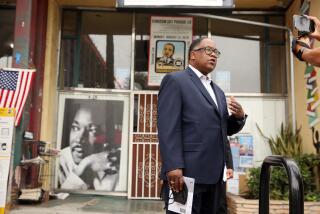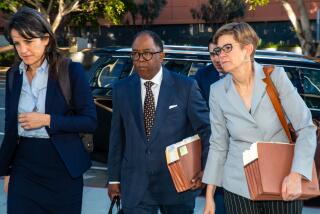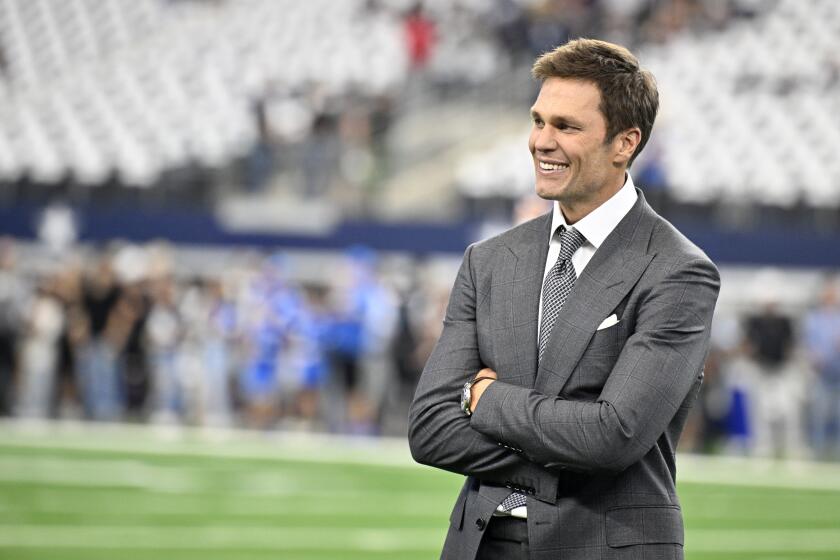Henley Juror to Take the 5th in Bid for New Trial
SANTA ANA — A juror who is alleged to have solicited a bribe to vote against convicting former Ram cornerback Darryl Henley on cocaine trafficking charges said Tuesday he plans to invoke the 5th Amendment if called to testify during a defense bid for a new trial.
Making a brief appearance in federal court here, Bryan Quihuis of San Bernardino told U. S. District Judge Gary L. Taylor that he would invoke his rights against self-incrimination and refuse to answer every question posed to him.
The judge later appointed a lawyer to advise Quihuis about his rights, and ordered the San Bernardino man to return to court Thursday morning.
Quihuis has emerged as a key figure in the attempt by Henley and four co-defendants to secure a new trial. The five were convicted last March of running a drug ring that distributed cocaine cross-country, charges that carry mandatory prison sentences of at least 10 years.
But they have since filed a motion for a new trial, based in part on defense allegations that Quihuis told another juror--Michael Malachowski of San Bernardino--that he would be willing to vote for the defendants’ acquittals in exchange for a $50,000 bribe.
Defense lawyers contend that Quihuis used methamphetamines during the trial and lied about his drug use during jury selection. They also claim that their clients did not receive a fair trial because of other jury misconduct, including racist comments against blacks by jurors during deliberations.
But federal prosecutors contend that Henley orchestrated the bribe discussion to win a new trial, and acted in concert with Malachowski.
Malachowski served on the jury only a few weeks before he was excused for technical reasons.
Prosecutors contend that it was Malachowski who raised the matter of a $50,000 bribe for Quihuis to secure a not-guilty verdict in the case. Malachowski has since been indicted on jury tampering charges. He has pleaded not guilty.
On Tuesday, Assistant U.S. Atty. John C. Rayburn Jr. played tape-recorded segments of several of Henley’s telephone calls from prison that, prosecutors contend, show the football player knew about the bribery scheme.
In one segment, Henley told a friend and business associate: “When you talk to homeboy, see if he could make a deal with that car.”
Rayburn contended that the football player was speaking in code and was referring to a deal with Malachowski, described by the prosecutor as Henley’s “meal ticket out of jail.”
Henley had earlier testified that Malachowski showed up unexpectedly at the football player’s Brea home one day just before the trial ended last March. The two discussed football and the possibility of setting up a sports-card show in Hesperia, Henley said.
As Malachowski was leaving that day, he told Henley the jurors were discussing the case, despite the judge’s instructions to wait until deliberations to talk about it, Henley said.
More to Read
Go beyond the scoreboard
Get the latest on L.A.'s teams in the daily Sports Report newsletter.
You may occasionally receive promotional content from the Los Angeles Times.










